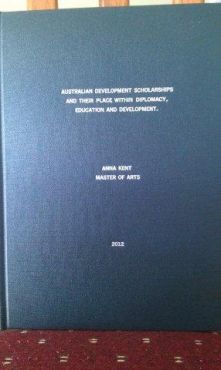International education is not just important for universities, it has shaped our nation.
International education is in crisis, both in Australia and around the world. It is time for Australians to learn more about international education and why it is important.
Restrictions on travel have kept students from travelling to Australia for study, and has limited the options of those already in Australia. International students are queueing for food vouchers in the streets of Melbourne and Sydney, universities are losing staff and funds as international student fees dry up. The place of international education in the relationship between Australia and China is now regularly discussed, with racism and geopolitics all part of the conversation. Academics, policy makers and commentators are asking serious questions about what international education will look like on the other side of this crisis.
This is not the best way for many in the Australian community to be learning about international education, and the presence of half a million students in their community, but it is, unfortunately, the circumstance we find ourselves in.
This is not the first time that a crisis has brought international education into popular and political view. The last “perfect storm” of 2008-2010, involved a financial crisis, the closure of a number of private providers and a series of racist attacks. This pushed the sector into view and into the minds of analysts who don’t regularly engage with international education – for example the intervention of the foreign policy think-tank the Lowy Institute, with a briefing paper written by Michael Wesley . The current crisis, which is far more serious than the previous perfect storm, has also brought out the security analysts. A recent opinion piece in the Canberra Times, written by two employees of the Australian Strategic Policy Institute, was a lesson in how not to discuss international education in public forums, and others more closely aligned with recruitment and admissions may wish to respond to the inaccuracies within it.
But the presence of these conversations in public forums and policy think tanks offers those of us in the sector an opportunity to continue that conversation; to further the discussion about international education using our own research and knowledge.
....you can read the rest of this piece at the Asian Currents blog
http://asaa.asn.au/international-education-is-not-just-important-for-universities-it-has-shaped-our-nation/
